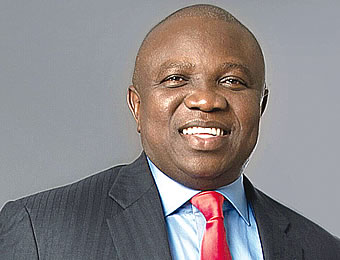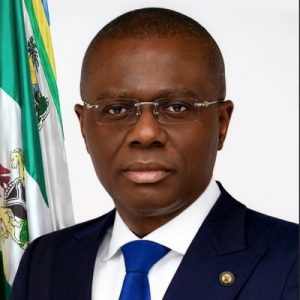
ABUJA, Federal Republic of Nigeria. The Federal Executive Council (FEC) presided over by President Muhammadu Buhari yesterday approved a $200 million which is the second tranche of the $600 million World Bank credit facility to the Lagos State government to upgrade its infrastructure, including road rehabilitation.
Briefing State House correspondents after the meeting, Minister of Information and Culture, Lai Mohammed and his Power, Works and Housing counterpart, Babatunde Raji Fasola said the FEC’s approval was sequel to the memo presented to the council by the Minister of Finance, Kemi Adeosun, which explained that the loan would facilitate the completion of developmental programmes like road construction and rehabilitation initiated by the Lagos State government since 2010.
Giving a clarification on the loan facility, Fashola, who is the immediate past governor of Lagos State emphasised that it was not a new loan but a segment of a programme of developmental initiatives, which was approved in 2010 totalling $600 million to be disbursed in tranches of $200 million each year starting from 2011-2013.
“But it suffered delays as a result of partisan political differences in the last dispensation. After the first tranche was disbursed, there was a freeze on the second tranche. The initial agreements we had with the World Bank was a 40-year loan at 0.5 percent interest and a 10-year moratorium. Because of the delays that subsequently characterised the partisan interference that took place, our profile as a nation also changed.
‘‘We had become a bigger economy and money was being lent to us but no longer to a highly indebted nation. So by the time this one was approved, we had lost some years in the 40-year tenure. It is now a loan of 25 years and the moratorium reduced to five years from 10 years. The interest rate had gone up to 2.5 per cent, but what is still heartwarming about it is that it helps to finance our infrastructure.
‘‘When we look at road construction, then we see value chain that people such as labourers, those who sell iron rods, artisans and craftsmen benefit from it. It is infrastructure that defines how big a nation can grow and it is the defining line between poor and rich nations,” Fashola said.
He said it was heartwarming that the existing administration had taken it on and again fast- tracked it “so that the Lagos State government can continue its developmental programmes of infrastructure renewal, taking people out of poverty and reducing inequality because that’s the way to really distribute wealth in a society.”
Fashola also listed Edo, Ekiti and Rivers states as some of the states that have benefitted from such facilities, believing that it would grow the economies of the affected states.
According to him, that the World Bank has decided to lend such an amount of money was an indication of strong confidence in the present administration’s financial discipline, strong governmental structure and established institutions.
Fashola insisted that the approval of the loan went through a rigorous competitive process, noting that the fact that Lagos State got the loan then as an opposition state was an indication that it was duly qualified for the facility.
He disclosed that the then Finance Minister, Ngozi Okonjo-Iweala, had confirmed to him at a time that the Peoples Democratic Party governors were calling her to complain that the World Bank loans were being facilitated for the All Progressives Congress-controlled states, noting, that was what accounted for it being stopped.
According to him, “I mentioned partisan differences because I remember when the delays came up, I was told by the then Minister of Finance that she was getting complaints from PDP governors that it was only APC states that were benefitting at the time from the World Bank loans.
“But we got access when we were in opposition, because we were qualified and we met the competitive conditions. One of the resolutions we have taken is that we must encourage other states who meet these kinds of conditions across party lines to be able to access them, because it is competition that really brings productivity.”
The former governor however, allayed the fear about the repayment of the loan noting that, monies from such loans were normally deducted directly from states allocations during the monthly Federation Accounts Allocation Committee (FAAC) meeting.
But before the meeting commenced, President Muhammadu Buhari yesterday proved that his reputation as a stickler for time is not a fluke.
He arrived for the weekly Federal Executive Council (FEC) meeting scheduled to start at 10:00 a.m., some 10 minutes earlier at 9:00 a.m. ahead of some state officials, among them the Vice President, Prof. Yemi Osinbajo and some other cabinet members.
Others who came later included the Chief of Staff, (CoS), Abba Kyari, National Security Adviser, (NSA) Maj-Gen. Mohammed Babagana Monguno (rtd), Minister of Labour and Employment, Dr. Chris Ngige and Minister of State, Foreign Affairs, Khadija Abba Ibrahim who came in about four minutes after the president’s arrival.
Altogether, about 19 ministers were not on their seats when Buhari arrived as a result of which there were scurrying and glancing at their wrist watches by those who arrived only to discover that the president was already seated.
Though he did not say anything that could be interpreted as chastisement to the late comers, the president surveyed the chamber and quipped: “I came too early.”
He then quickly asked for the recitation of the National Anthem as a prelude to the commencement of the meeting.
Credit: Guardian (Nigeria)


